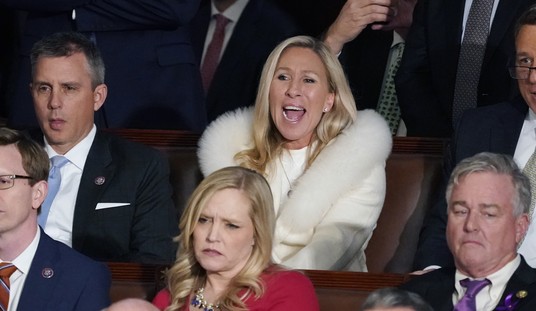Defense Secretary Chuck Hagel and Chairman of the Joint Chiefs of Staff Gen. Martin Dempsey told the Senate Armed Services Committee that they haven’t thought ahead yet to what happens when Bashar al-Assad starts striking Free Syrian Army forces tasked by the U.S. to fight ISIS.
Sen. John McCain (R-Ariz.) first pointed out at this morning’s hearing that training and equipping approximately 5,000 FSA fighters in one year seems like a inadequate response” to the strength of “some 31,000,” ISIS fighters, “metastasizing in a very rapid fashion into a much larger force.”
“And, obviously, this group of 5,000, as you mentioned, in unit size deployments will be back in Syria fighting against ISIL. They will also be fighting against Bashar Assad, which they’ve been doing for a number of years before ISIL was ever a significant factor,” McCain told the Pentagon leaders.
“Now, they will be fighting against Bashar Assad, and Bashar Assad will attack them from the air, which he has done and with significant success, not only against them, but there’s been 192,000 people who have been slaughtered in Syria since the onset,” the senator continued. “If a — if one of the Free Syrian Army is fighting against Bashar Assad and he is attacking them from the air, would we take action to prevent them from being attacked by Bashar Assad?”
“Well, we’re, first of all, not there yet, but our focus is on ISIL and that is the threat right now to our country and to our interests and to the people of the region. So what we are training these units for, yes, as a stabilizing force in Syria, as an option, but the first focus is, as I just said, as the president laid out in his statement to the country,” Hagel replied.
“We are now recruiting these young men to go and fight in Syria against ISIL, but if they’re attacked by Bashar Assad, we’re not gonna help them?” McCain asked.
“They will defend themselves, Senator,” Hagel said. “We will help them and we will support them, as we have trained them.”
“If we were to take Assad off the table, we’d have a much more difficult time forming a coalition,” Dempsey said. “But I think what you’re hearing us express is an ISIL first strategy. I don’t think we’ll find ourselves in that situation, given what we intend to do.”
“You don’t think that the Free Syrian Army is going to fight against Bashar Assad who has been decimating them? You think that these people you’re training will only go back to fight against ISIL?” McCain continued. “Do you really believe that, General?”
“What I believe, Senator, is that as we train them and develop a military chain of command linked to a political structure, that we can establish objectives that defer that challenge into the future. We do not have to deal with it now,” Dempsey said.
“That’s a fundamental misunderstanding of the entire concept and motivation of the Free Syrian Army. That — it is Bashar Assad that has killed many more of them than ISIL has,” said McCain. “And for to us say that we are going to go in and help and train and equip these people and only to fight against ISIL, you’re not gonna get many recruits to do that, General. I guarantee you that. And that’s a fundamental fallacy in everything you are presenting the — this committee today.”
Dempsey acknowledged that he recommended aiding Syrian opposition forces back in 2012, when President Obama overruled the Pentagon, State Department and CIA.
“You know that for policy reasons, the decision was taken in another direction,” Dempsey said.
McCain asked Hagel if he was concerned about security on the southern border. “We received testimony from our homeland security people that our border is porous and the people who are now free to travel to the United States and also other radical elements, might cross our southern border to attack the United States,” the senator said.
“I’m always concerned about our border,” Hagel responded. “…We — we can improve our border security.”









Join the conversation as a VIP Member